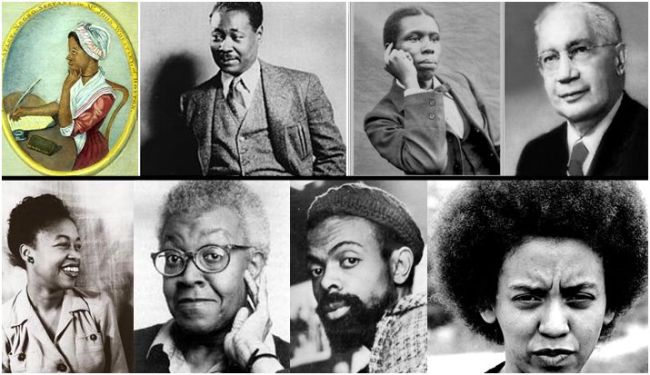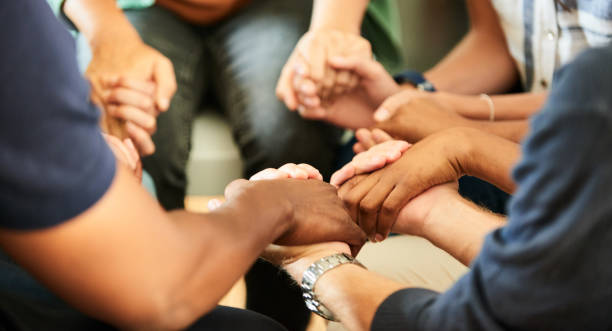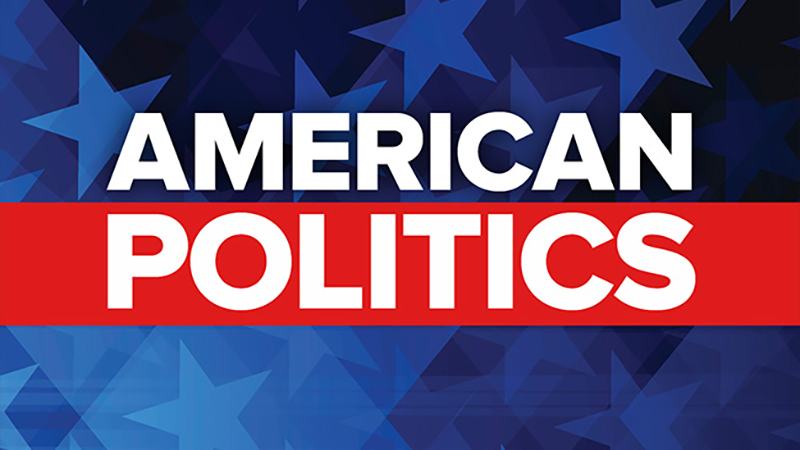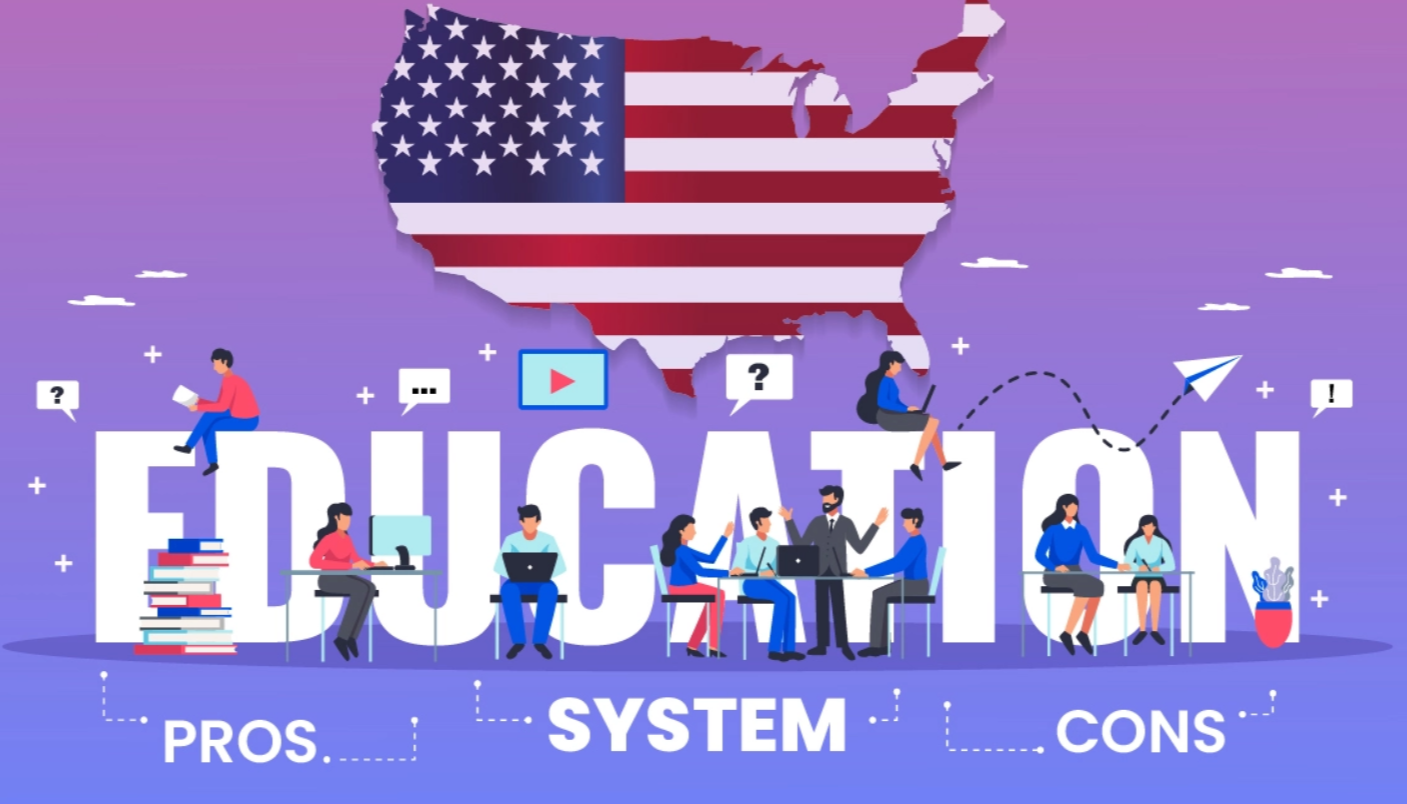(ThyBlackMan.com) I’ve never claimed to be a poetry aficionado, I’ve always preferred short stories and anthologies of stories. However, there’s something about poetry—and Black poetry in particular—that’s special.
You have the obvious differences in that poetry is generally shorter but it can be as long or as short as the writer intends. Like long-form, prose morphs into another form of poetry depending on length. Something can go from limerick to epic or from elegy to ballad all on a writer’s direction and investment.
Poetry has always been a form that I dabbled with here and there. I’d read a poem and maybe another or I’ll read a collection and nothing else. In reading my favorite authors’ books, I’ll seek out similar authors but poets tend not to get the same follow up.
Poetry Encourages the Imagination
Honestly, it’s a preference in reading. However, when I read poetry, it’s a difference experience. Your imagination is still given a bit of a workout with poetry. With long-form such as novels and novelettes, the writer fills in enough or the whole picture to the point where your imagination could call it a light task for the way.
Sure, your literacy and comprehension are still getting a workout but the imagination? Ehh, it’s mostly there for the ride. Maybe there’s something that captures your imagination and really puts it to work. With poems, you’re given a little to work with while the poet said quite a bit in those verses.
Poetry leaves you trying to understand what the poet was trying to convey in those few lines. Some poetry makes it a little easier while with others, it can seem like jazz in written form. The thoughts might seem all over the place because of how a poem can progress but they’re actually related thoughts.
So, you’re given a bit of a brain jogger piecing this together and seeing what that relates to and how. On top of that, you have poets using metaphors in the tight space of a poem. It’s no different from how musicians can make us pause to take in the lyrics of a song and decipher metaphors.
Which made it even more curious when I thought about why I didn’t really read poems regularly. I love music and love looking into lyrics. This is particularly true when the lyrics tell a confined story and is linked to other songs.
Poetry at its core is a song without an instrumental track. Technically, it doesn’t even have vocals. All of that comes into play when there’s a reading of the piece. If you strip the instrumentals from a song and leave the lyrics, you have a poem. It’s so simple but I still couldn’t give poems the time of day that I give music, games, and fiction novels.

Black Poetry is History
I went to a predominantly Black high school in the Deep South. Poetry wasn’t the biggest thing on our literacy agenda but when during Black History Month there was poetry reading to be done. This was for every grade and often times, we read the same couple of poets.
Some of them would become favorites but for the post part, you got burned out. It became expected that when February came around, we’d have to read and do a report on a Langston Hughes or Maya Angelou poem. During that month, I would find a poem that I regularly revisit. From James Baldwin’s “Staggerlee Wonders”:
This flag has been planted on the moon:
it will be interesting to see
what steps the moon will take to be revenged
for this quite breathtaking presumption.
This people
masturbate in winding sheets.
They have hacked their children to pieces.
They have never honoured a single treaty
made with anyone, anywhere.
The walls of their cities
are as foul as their children.
No wonder their children come at them with knives.
Mad Charlie man’s son was one of their children,
had got his shit together
by the time he left kindergarten,
and, as for Patty, heiress of all the ages,
she had the greatest vacation
of any heiress, anywhere:Golly-gee, whillikens, Mom, real guns!
and they come with a real big, black funky stud, too:
oh, Ma! he’s making eyes at me!
What hit me about Baldwin’s work and what I love the most is the sarcasm and cynicism that comes through. At times, it came be seen as being dismissive of what has been taught is “truly American” as a lot of it didn’t apply to Black folks at the time that it was written. That justifiable dismissiveness is something that just works for me.
It’s basically a citizen making an observation with their greatest weapon—which is what all artists are capable of doing. “Staggerlee Wonders” hits hard because it’s something that Black poetry represents: a voice of the times.
I’m a big history guy, I’ve always loved documentaries and books on different periods of history. It was my favorite subject to study and this is a great historical poem. You can see documentaries about the Summer of Love, the Civil Rights Movement, Segregation in the South, and the Vietnam War—and for the most part, many of us have—but often left out are the poets of the time reflecting on all of this.
Or perhaps more musicians of the period picked up the torch. After all, there are different points in history where poems and books are consumed more than others. Plus, people take in information and views in different ways.
“Staggerlee Wonders” was written in the early 1980s, James Baldwin began writing in the late 1940s, so he’d seen and experienced a lot by the time he wrote this piece—and there were still things he felt America needed to address.
Black poetry as history is important because while history is written multiple ways and can depict the American Black experience from history to culture in different ways, poetry is an also an accurate depiction as its based more on direct experiences and they’re feelings about them.
Like them to war letters from the Civil War or World War II only these aren’t letters to a particular person in a particular time. These “letters” are for all readers regardless of decade.
Black Poetry is Life and Culture
Advancements in commercial technology didn’t stop Black poets from reflecting on society regardless of the decade. It couldn’t as all of this needs to be documented in any way possible. Equally important to Black poetry’s role as historical document is its role as a cultural document.
The thing that hit first with Black poetry for me was how it talks about Black culture from different perspectives—only for there to be many shared experiences. This can be from Black poets of the past to the current wave, there are certain experiences growing up or going through life that are pretty universal.
A modern poem that defines this is Jericho Brown’s “Prayer to the Backhand”:
Not the palm, not the pear tree
Switch, not the broomstick,
Nor the closet extension
Cord, not his braided belt, but God,
Bless the back of my daddy’s hand
Which, holding nothing tightly
Against me and not wrapped
In leather, eliminated the air
Between itself and my cheek.
Make full this dimpled cheek
Unworthy of its unfisted print
And forgive my forgetting
I read this poem while on a family trip in New Orleans—Brown is a Louisiana-native—and found it interesting for some reason. Maybe it was that reaction to having gotten a switch and belt of several as a kid. It could also be that same attention given whenever older Black comedians go into an “I got whuppings as a kid” bit.
You know the bit, you’ve heard it before but sometimes you just want to know if they’ve got something new with the joke or if it’s much of the same. I don’t know what attracted me to “Prayer of the Backhand” but I found myself reading it over and over.
Just like any piece, there will be some that instant catches you and others that won’t but you can still appreciate the writing. One that I can appreciate for the power and rawness it packs comes from Tyehimba Jess’ “martha promise receives leadbelly, 1935”:
when your man comes home from prison,
when he comes back like the wound
and you are the stitch,
when he comes back with pennies in his pocket
and prayer fresh on his lips,
you got to wash him down first.you got to have the wildweed and treebark boiled
and calmed, waiting for his skin like a shining baptism
back into what he was before gun barrels and bars
chewed their claim in his hide and spit him
stumbling backwards into screaming sunlight.
The poem has a punch to it that Brown’s didn’t in that while we get allusions to better things for the prisoner at his woman’s hands, Jess’ delivery is blunt. That’s the beautiful thing about Black poetry: different focuses for different but often shared experiences in the Black community.
Hell, “martha promise receives leadbelly, 1935” is also an evergreen piece. At any time in American history, a Black man can return from prison and they will need help in washing away prison so they can be a part of world of the living. The story of blues musician Huddie “Lead Belly” Ledbetter and wife Martha Promise not only serves as a good basis for the poem but it’s an everyday story that sometimes ends differently.
I would say that it gives everyone in that kind of situation some hope that someone will hold them down while inside and prop them up when they’re out but as we know, these stories don’t always have a happy ending.
Black poetry gives you a story rooted in realism—good ending, bad ending, always realistic. I’d say give another mark for Black poetry.
Black Poetry is Relatable
Ultimately, Black poetry like long-form Black writing is relatable and realistic. There’s this mix of “You’ve been here before or know someone who has”, urban grit, and rural roughness. I tend to joke my family isn’t that removed from the country.
In the South, there are plenty of Black families who have lived in the city for decades but you’d think they were a generation or half-a-generation removed from the folks who lived in rural parts of a state. When a poet has a poem that goes into childhood or upbringing, there’s always something relatable even if their childhood was on a different end of the scale from my own.
Black poetry’s strength is not just in storytelling but in pointing out similarities. Black people are all over the globe—even in the most unlikely places where we number in a few thousand—and a poem that connects with a Black person in Brooklyn, one in Brixton, or one living in Belgium is a powerful piece.
That isn’t to say that only Black poetry has that connection but there’s more poetry out there that isn’t going to relate to me on a cultural and historical level out there. I might read it and think “That’s a good poem” but I’m don’t have the same “Wow, let me read that again” reaction that I get from Black poets that often.
Staff Writer; M. Swift
This talented writer is also a podcast host, and comic book fan who loves all things old school. One may also find him on Twitter at; metalswift.
















Leave a Reply